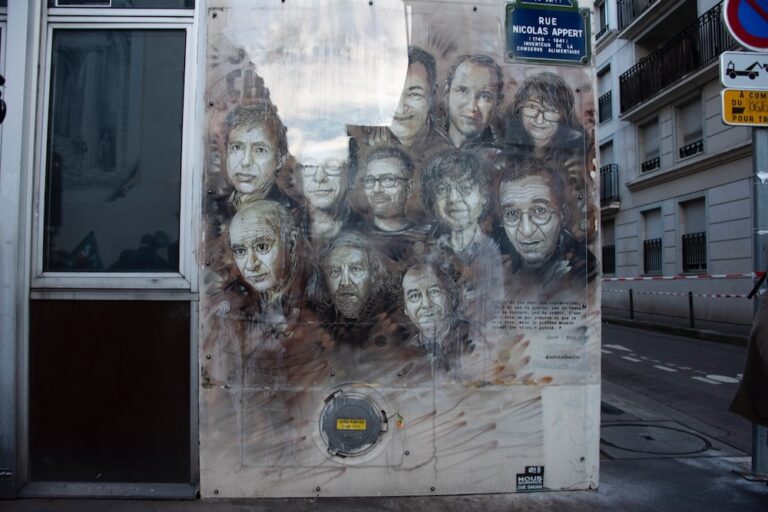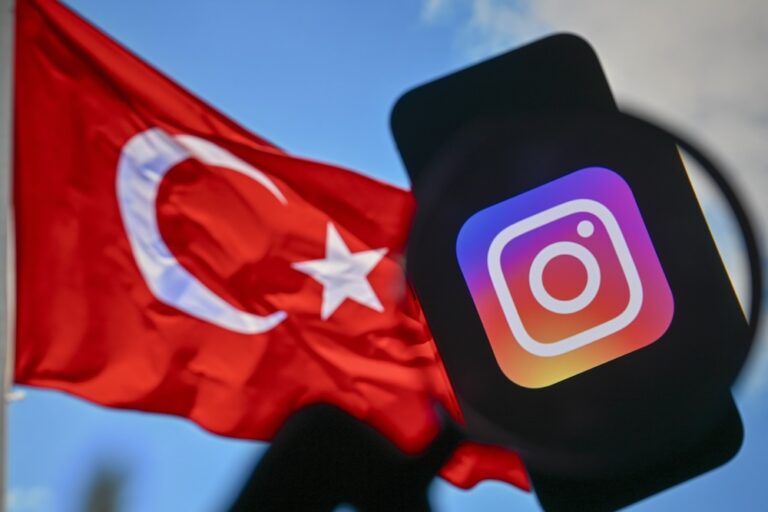The concept of "defamation of religions" conflicts with the universal right to freedom of thought, conscience, and religion itself by designating certain ideas as off-limits for debate and discussion, warns Freedom House.
(Freedom House/IFEX) – The following statement was posted on Freedom House’s Freedom at Issue blog:
September 27, 2012
By Courtney C. Radsch, Senior Program Manager for the Global Freedom of Expression Campaign
The recent outbreak of violence in several Muslim-majority countries, ostensibly in response to a malicious amateur video created by anti-Muslim hatemongers, has prompted calls to formally restrict speech that insults or does not “respect” religions and prophets. Freedom House, along with many other human rights and free expression organizations, has spent years attempting to turn the tide of opinion at the United Nations against this idea, which has reared its head annually in the form of a resolution condemning the so-called “defamation of religions.” In 2011 we succeeded, only to see the progress quickly reversed as a result of the disparaging Innocence of Muslims video clip and the ensuing violence, which has left dozens of people dead around the world.
Religious belief is a very personal thing. And everyone’s right to believe what and how they choose should be fiercely protected. But is religion itself entitled to the same rights as the believer? If one follows this line of thinking, an argument could be made that ideologies and concepts like communism and capitalism should also be protected from insult. Such bans are clearly inimical to free and open discourse, whether it be religious, political, economic, or scientific. Beliefs do not have rights, and laws that say otherwise are directly at odds with the fundamental rights of human beings, as the following questions and answers illustrate.
Why are laws or resolutions that prohibit “defamation of religions” or blasphemy problematic?
The concept of “defamation of religions” conflicts with the universal right to freedom of thought, conscience, and religion itself by designating certain ideas as off-limits for debate and discussion by believers and nonbelievers alike. Even though it may be deeply hurtful and offensive to have another person criticize your religious beliefs, this is not in and of itself a violation of your rights, and you are free to mount a defense with speech of your own. By contrast, restricting such speech is a violation of the right to free expression, codified in Article 19 of the International Covenant on Civil and Political Rights.
National laws against religious “defamation” and blasphemy have commonly been used to repress religious minorities, to restrict the ability of members of the majority religious community to practice their faith in the way they choose, and even to settle personal grudges. In Pakistan, 16 people are on death row for blasphemy, and at least 20 others are serving life sentences. A 14-year-old Christian girl with mental disabilities was arrested there last month for allegedly desecrating an Islamic textbook. And two prominent Pakistani politicians were assassinated in early 2011 merely for advocating reform of the country’s harsh blasphemy law. In Egypt on Wednesday, a 24-year-old activist was charged with blasphemy after sharing scenes from Innocence of Muslims on Facebook and speaking negatively about religions.
As documented in Freedom House’s special report Policing Belief: the Impact of Blasphemy Laws on Human Rights and by other human rights groups, there is no evidence that restricting speech reduces religious intolerance. In fact, the evidence shows that prohibitions on blasphemy actually encourage or justify intolerance and lead to a wide range of human rights abuses, including religious discrimination, arbitrary arrest, torture, and even murder.
Why shouldn’t religion have the same protection as race?
Those who advocate a ban on “defamation of religions” often falsely equate criticism of religious belief with racial discrimination. One could argue in response that a person’s race is inherited and immutable, whereas religion is a belief that individuals are free to choose or change (unless they live in a country where conversion is criminalized). But the more important distinction is between discriminatory action – such as targeted violence or denial of goods and services – and critical speech. The former is a human rights violation, whether it is based on the victim’s race or religion. The latter is not.
What is the United Nations “Defamation of Religions” resolution?
From 1999 through 2010, the Organization of Islamic Cooperation (OIC) put forward a resolution at the United Nations Human Rights Council that urged states to prevent the “defamation of religions” by restricting the right to free expression. Each year it passed, but with a declining number of votes. Similar resolutions also passed at the UN General Assembly. Proponents of these measures argue that Muslims in particular are facing a wave of intolerance and discrimination, known as “Islamophobia,” that features negative portrayals of Islam and links the religion to human rights violations and terrorism. The ultimate goal of their efforts is an international treaty on defamation of religions that would amount to a global blasphemy law.
What is Resolution 16/18 and why is it better?
In 2011, the OIC did not put forward the annual “defamation of religions” resolution. It was replaced by the vastly improved Resolution 16/18, entitled “Combating Intolerance, Negative Stereotyping and Stigmatization of, and Discrimination, Incitement to Violence and Violence Against, Persons Based on Religion or Belief.” That document focused on the rights of individuals to be free from intolerance and discrimination based on religion while calling upon states to take concrete steps to protect religious freedom, prohibit discrimination and hate crimes, and counter offensive expression through dialogue, education, and public debate rather than criminalization of speech.
Both OIC member countries and Western countries, including the United States, supported Resolution 16/18. Member states have since launched the Istanbul Process, which focuses on how governments can actually implement the recommendations in the resolution. One expert-level meeting has already occurred, in 2011 in the United States, and the next one will be held in December 2012 in the United Kingdom. The upcoming meeting offers a welcome opportunity to direct the world’s attention back toward a response to intolerance that does not violate human rights or obstruct the free exchange of ideas.

Freedom House


